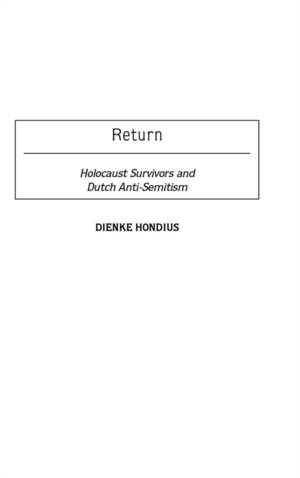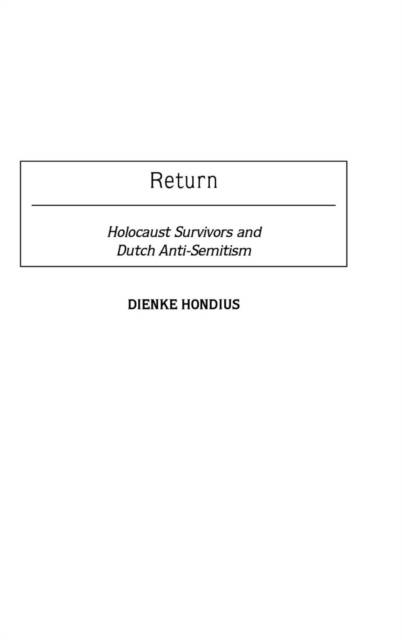
- Retrait gratuit dans votre magasin Club
- 7.000.000 titres dans notre catalogue
- Payer en toute sécurité
- Toujours un magasin près de chez vous
- Retrait gratuit dans votre magasin Club
- 7.000.0000 titres dans notre catalogue
- Payer en toute sécurité
- Toujours un magasin près de chez vous
Description
While the Netherlands had often been thought of as a champion of racial and ethnic tolerance before and during the Second World War, more than 75% of Dutch Jews were killed and those returning after the war were met with subtle but tough anti-Jewish sentiments as they tried to reclaim their former lives. For most survivors, the negative reactions were unexpected and shocking. Before the war, Dutch Jews had become part of the fabric of Dutch life and society, so the obstacles they faced upon their return were particularly painful and difficult to handle. The sobering picture presented in this book, based on research in archives, survivor's memoirs, and interviews with survivors, examines and chronicles the experiences of repatriated Jews in the Netherlands and sheds light on the continuing uneasiness and sensitivities between Jews and non-Jews there today.
In the aftermath of the Holocaust, survivors returned to their home countries not knowing what to expect. In the Netherlands, considered a more tolerant nation, returnees wondered how they would be received by their neighbors; what had happened to their homes, their businesses, and their possessions; and whether or not they would be welcomed back to their jobs or their schools. The answers to many of these questions are now more important than ever, as claims for restitution continue to be made. Hondius shows that survivors returning to the Netherlands were met with a revival in anti-Semitism around the issue of liberation and that many were forced to create two memories of the time: one around the rejoicing and displays of triumph that took place in public and the other around the secret discrimination and cruelty, dealt subtly, in the private arenas of everyday life. The blinding effect of a long history of generally good Jewish/non-Jewish relations turns out to be a most tragic aspect of the history of the Holocaust and the Netherlands.Spécifications
Parties prenantes
- Auteur(s) :
- Editeur:
Contenu
- Nombre de pages :
- 224
- Langue:
- Anglais
- Collection :
Caractéristiques
- EAN:
- 9780275980467
- Date de parution :
- 30-10-03
- Format:
- Livre relié
- Format numérique:
- Genaaid
- Dimensions :
- 158 mm x 246 mm
- Poids :
- 439 g

Les avis
Nous publions uniquement les avis qui respectent les conditions requises. Consultez nos conditions pour les avis.






